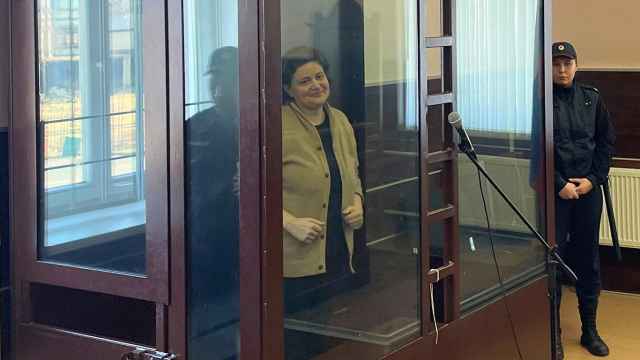Business ethics are improving in Russia, on paper at least.
More local companies are emulating Western standards and adopting ethics codes to help them operate in a corrupt environment and create the appearance of trustworthiness.
Such codes regulate everything a company's employees do, from how they dress to how they act in case a bribe is offered. Businessmen jokingly compare them to a famous poem by Vladimir Mayakovsky called "What Is Good and What Is Bad," in which a father gives simple life-guiding advice to his son.
In the last three years, state companies, including Sberbank and Rosneft, have established codes for their workers as part of President Dmitry Medvedev's initiative to increase transparency. Gazprom has begun putting together its ethics guidelines, which could take more than a year to deploy. Private companies have followed suit.
Companies are reluctant to talk about the efficiency of the codes, however.
LUKoil added a code for workers at the end of last year. Since LUKoil has offices in many regions of the world and a staff of about 130,000, a common set of rules was necessary, LUKoil spokesman Vladimir Simakov said.
"Were there any infractions in terms of business ethics? Of course there were," Simakov said, without elaborating. LUKoil established a committee to monitor the efficacy of the code, but Simakov said he couldn't assess whether the measure is working yet since at least a half a year is necessary.
It's not just the banks and oil and gas giants that are formalizing an ethics culture. Last year, members of Opora of Russia, an association of medium-sized businesses, signed a resolution on ethical conduct.
Opora member Econika Corporation, which includes shoe stores, industrial equipment and real estate investment, published a set of rules for employees in 2008.
"It is good for the image — and clients, investors and partners respond with trust," said Econika chief executive Andrei Iliopulo.
Some experts see the ethics code trend as an example of transforming the economic model from wild capitalism to socially responsible business.
"Business feels this need and tries to fulfill it," said Alexander Sergeyev, a professor at the School of Higher Economics. "It might seem strange, but people like to live by the rules."
Companies are adopting codes based on international best practices and include clauses on conflicts of interest and social responsibility.
British-Russian conglomerate TNK-BP has one of the most respected codes in the country, said Mikhail Kuznetsov, head of the Association of Independent Directors. His group consults companies on implementing ethical codes and other ways to improve their practices.
TNK-BP's code outlines a set of principles covering ethical conduct, employee behavior, external relationships, health, safety, security and environmental performance, control and finance. A company spokesman told The Moscow Times that they have never had any issues with the codes, which were implemented in 2004.
Codes are not a completely new foreign phenomenon. Delovaya Rossia, an association of 65 companies in the retail and franchise sector, including the X5 Group, the country's leading grocer, has required members to sign a code of ethics since its founding in the 1990s. An updated version of the code was rolled out in 2003.
The association's director, Yury Mikhalchenko, said a specific benefit of their code has been a reduction in franchise fraud — a common occurrence in which unauthorized agents sell franchises to unsuspecting regional small businessmen.
Another advantage of trying to get employees in the franchise sector to subscribe to codes of conduct is that, by standardizing behavior and expectations, they come closer to providing uniform quality of customer service, Mikhalchenko said.
But effective codes of conduct are not yet the mainstream. Kuznetsov said that less than 100 companies are firmly committed to their codes.
"It's more like a facade, something needed to improve the image to outsiders, not something to take seriously," said Kuznetsov, whose clients range from giant state companies to private businesses with an annual turnover of $100 million.
The Committee to Fight Corruption, an independent public organization that works to battle graft, started earlier this month to research the effect of companies' ethics codes on governance.
The committee will poll 60 German companies operating in Russia that signed anti-corruption measures last year. The results will be published in the April issue of the committee's magazine.
"The companies signed the codes, but do they follow them?" committee chairman Anatoly Golubev said. "Nobody has this information."
Although many companies implemented codes over the last three years, corruption is at a 10-year high. Russia scored a low 2.1 on the Transparency International Corruption Perceptions Index, in 2010 — down from 2.2 in 2009 and less than the 10-year average of 2.4.
Many local companies are cynical when it comes to ethics codes.
The owner of a midsized travel agent laughed when asked whether there is a document that outlines ethics for employees of her company.
"There are no written postulates of behavior," she said.
In their employment contract there are written guidelines concerning customer service, but that's all. The agency's more than 150 workers are expected to show good judgment and respect toward the company and its management.
The company does not accept bribes, but when it comes to giving, it's a different story.
"There is no way to get around it. It's not called a bribe, it's a 'thank-you,'" the travel agency's owner said.
Thank-yous include free or reduced international travel fares for tax officers who inspect the company's finances and monetary presents for the firemen who approve the safety of the company's offices.
International companies are not exempt either.
Last year, a number of businesses were caught in corruption scandals, including Hewlett-Packard, Daimler, Siemens, IKEA and the Swiss logistics company Panalpina. The U.S. Department of Justice has pressed charges against several of them for violating the Foreign Corrupt Practices Act.
Although, like many international companies, HP has a detailed code of conduct published openly on its web site, the company's Moscow office was raided last April on suspicion that employees paid bribes in exchange for a $44.5 million contract to supply equipment to the Prosecutor General's Office.
HP declined to comment on its ethics code for this article, citing the ongoing investigation.
A former HP Russia chief of financial operations told The Moscow Times that companies seem to succeed at implementing their worldwide codes in Russia, since the number of publicly reported cases of misconduct is relatively small when compared with the large number of transactions that big companies like HP carry out.
But, he said, in general, the motto, "In, Rome, do as the Romans do" is quite appropriate. "It's very hard, if not impossible, to always go against the mainstream."
One of the key feedback elements of most ethics codes requires an employee to tell a superior or call a hotline when he sees a coworker doing something wrong. But this type of action is traditionally seen in Russia as tattling. "It's not a part of our culture," Kuznetsov said.
The Committee to Fight Corruption's Golubev said although there are codes, there are no instruments to apply them practically to the local reality. If the code says don't give bribes, but a tax or a fire official is threatening to impose exorbitant fines unless you pay up, what can you do? This is especially true in light of an ineffective judicial system and law enforcement.
Sergeyev of the Higher School of Economics said it's natural that people are likely to be skeptical toward a set of rules imposed from above that they were not involved in creating.
The apathy evoked by the "Moral Code for Builders of Communism," a set of 12 rules that every proper Soviet citizen was supposed to follow, is still fresh even in middle-aged Russians' minds, Sergeyev said.
Econika's Iliopulo said one way to get employees to take codes seriously is to include them in the drafting.
"They have to feel like it is done with their interests taken into consideration," Iliopulo said.
Small companies are not likely to have a document that outlines employees' conduct, said Tatyana Rybakova, director of the Center for Study of Corporate Citizenship. But she has seen many companies develop codes as they grow. It is now considered good form to have an ethics code.
"Little by little, whether they want to or not, they are realizing that it is important — it influences public opinion, investment, it makes communication easier," Rybakova said.
Both Kuznetsov and the former HP financial officer agree that the younger generation, coming of age in a more business-oriented society, is more likely to respect ethics codes.
"The big companies have planted the flags, so now hopefully everyone else will follow," Kuznetsov said. But, contemplating the demand for his company's consulting services on ethics codes implementation, he added, "I have to say, people aren't exactly knocking on our doors."
A Message from The Moscow Times:
Dear readers,
We are facing unprecedented challenges. Russia's Prosecutor General's Office has designated The Moscow Times as an "undesirable" organization, criminalizing our work and putting our staff at risk of prosecution. This follows our earlier unjust labeling as a "foreign agent."
These actions are direct attempts to silence independent journalism in Russia. The authorities claim our work "discredits the decisions of the Russian leadership." We see things differently: we strive to provide accurate, unbiased reporting on Russia.
We, the journalists of The Moscow Times, refuse to be silenced. But to continue our work, we need your help.
Your support, no matter how small, makes a world of difference. If you can, please support us monthly starting from just $2. It's quick to set up, and every contribution makes a significant impact.
By supporting The Moscow Times, you're defending open, independent journalism in the face of repression. Thank you for standing with us.
Remind me later.





